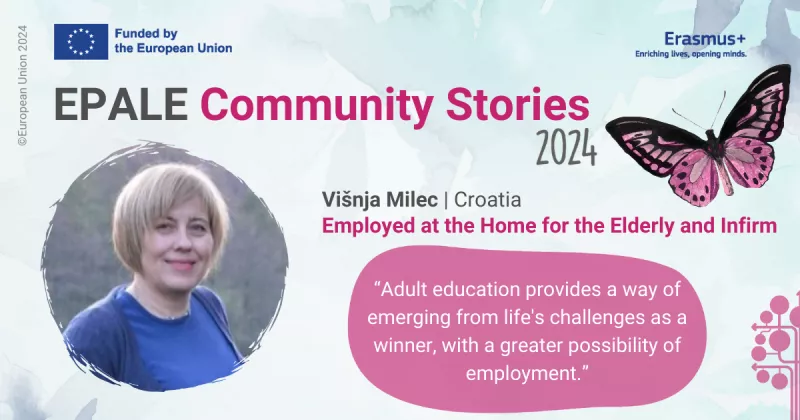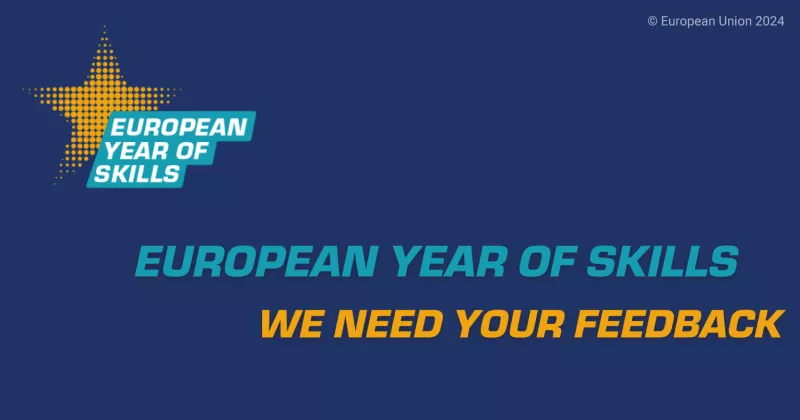EPALE Podcast - Life skills of the 21st Century. How to foster democratic engagement

In the latest EPALE Podcast Christin Cieslak speaks to Licínio Lima from the University of Minho, Angeliki Giannakopou from EAEA, and David Samuelson from the Swedish Adult Education Association about skills for a democratic life: what they are, what we need to better foster them and what challenges we are going to face in doing so.
How to define skills for a democratic life?
To summarise the complex concept of democratic skills, David Samuelson introduced the Swedish term Folkbildning. He describes it as a concept allowing the learner to be able to understand society, able to follow events and discussions through participation and organisation, so that one can be an active part of democratic life.
Angeliki Giannakopou then added that emotional and social processes would also have to be taken into account when discussing democracy. She underlined that access to crucial democratic processes is fundamental for persevering the “Power of the people”, and that citizens must know how to use their voice and keep raising it to enhance democratic skills in society.
To Licínio Lima, democracy and education are intertwined. In his opinion, without dialogue, we cannot achieve democracy, and active citizenship, which means mobilisation and democratic activism. To him, learning democracy through the practice of democratic citizenship and democratic forms of decision-making is paramount.
Thinking forward: skills for a democratic future in the context of Adult Learning
Having these definitions for a democratic life, Christin then moved on to what skills are essential for Adult Education and Lifelong Learning in the future.
Angeliki added that nowadays’ vastly media-influenced environment comes with many opportunities, but dangers too. David then gave an example of the positive aspect of social media, like connecting with like-minded people across borders. Mentioned downsides include not at least offering a platform for xenophobic thoughts and conspiracy theories.
Angeliki followed up that, therefore, media literacy is on top of the list of contemporary democratic skills because social media and artificial intelligence will probably have an even starker influence on our future life.
Licínio then added social and transformation skills to this list and stressed that for people’s capacity to acquire new skills, the openness to re-invent the status quo is vital.
“Sometimes we need to unlearn how to do some things (…) to open the room for new things to be learned”.
Supporting skills for democracy. Examples of good practices
To discuss more practical implications, Christin then asked the three guests to introduce a good practice example from their country in which democratic skills are successfully supported.
For Portugal, Licínio stated that adult learning and education are strongly connected with the popular education movement community. This helps to not lose touch with the people by overly formalised qualification frameworks.
Angeliki mentioned Greece being one of the few European countries that still has a really strong community sense concerning political activation and the demand for democracy.
“We see people going down in the streets vocalising learning from one another”.
For his good practice example of supporting democratic skills, David talked about the Swedish Folkbildning-initiative, which aims at integrating refugees into Sweden’s society. The Folkbildning not only encompasses offering language courses, but also aiding the refugees in exercising their democratic rights.
Obstacles to overcome for promoting a democratic life
Next, the discussion evolved around potential obstacles which have to be overcome to better create skills for democratic life.
Licínio objected to the lack of mutuality and that the responsibility for solution-finding for structural problems is located on an individual level, rather than a collective one. He emphasized the need to enhance solidarity and the undoing of hindering rivalry and competitiveness in the context of Adult Learning and Education.
David then talked about the problem of segregated civil societies and that in, his home country Sweden, especially in the context of rising immigration numbers, increasing levels of xenophobia can be observed.
Angeliki agreed with the observation of troubling developments, especially regarding segregated communities. She added that this is especially the case for the educational community, which is based on the privilege of acquiring knowledge. Underlining that the abolition of social inequity is still pending and for achieving a more democratic life for everyone, Angeliki stressed the importance of the earlier mentioned media literacy as well as the dangers of one-sided and biased media consumption, which makes it difficult to overcome predispositions.
EU’s tasks for furthering the development of democratic skills
Closing the discussion, Licínio emphasized the notion that the democratization of the European Union itself, should be labelled as unfinished business. In an ever-changing environment within the EU and its member states, there is always a need to rethink democratic skills and support a bottom-up approach.
“We have to stress the importance of ALE as a process of democratic empowerment, based on grassroots movements and institutions, not only on formal and bureaucratic apparatus”.
Besides enhancing the democratization process, David brought up that the EU should further internationalize itself and mentioned the Bologna Process as a good practice example in this context, which enables people to also attain their education abroad and paves the way for international publications.
As a final remark for the EU’s tasks to improve the development of democratic skills, Angeliki advocated overcoming discrepancies in the EU in terms of privileges, access and validity of people’s voices and their claims.
Read the full transcript of the podcast here
Photo by Daniel Lloyd Blunk-Fernández on Unsplash




